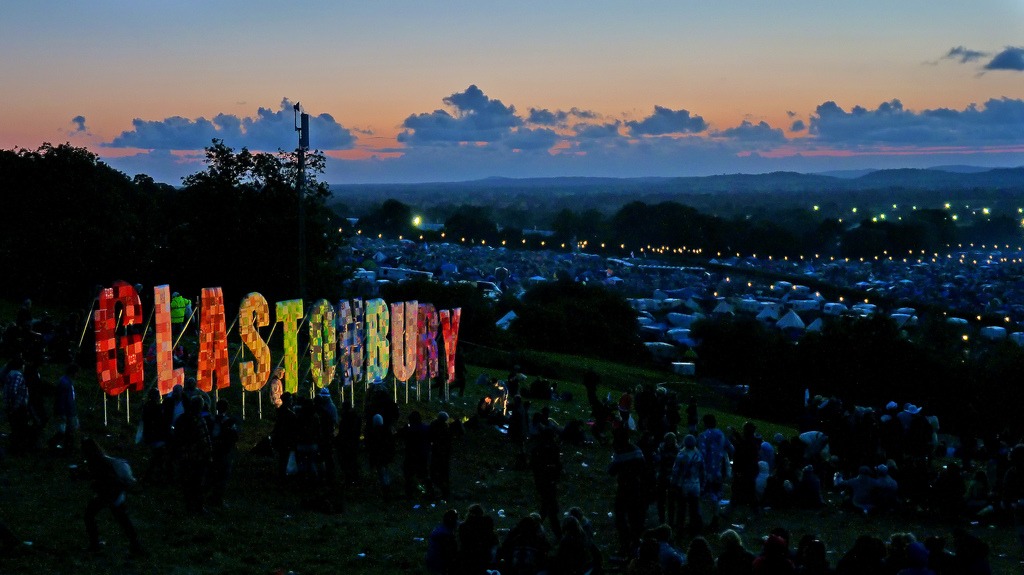Despite its price, music continues to be at the heart of Glastonbury
With headlining acts from across the globe, over two million pre-registering to try and get tickets, and a huge turnover, there’s no argument that Glastonbury is the biggest event in the British music calendar. The high costs and commercial success are, however, what has drawn criticism this year – with detractors claiming that the high ticket price and amount of money needed in contingency is meaning that the music is forgotten in the middle.
With the popularity of music festivals soaring, there is definitely a conversation to be had about their affordability. The Association of Independent Festivals (AIF) says festival goers spent nearly £400 per head on average per festival. AIF represent smaller festivals across the country, meaning this number could potentially be higher where major commercial players are organising the festival. Food and drink costs are the biggest source of complaints, with Festival Insights finding that over 50% of people find food and drinks costs a bit steep or a complete rip off. Cutting back on these costs is essential if organisers want to widen access to their festivals.
I’m in agreement with what the research says – for the tickets I’ve purchased, seeing the packed line up and knowing I’m going to be spending a long weekend surrounded by people who love the same music I do, the price feels like good value
From experience, pinching pennies on meals during the day seems like an essential part of festival-going, when it really shouldn’t be. After spending so much on a ticket, it can ruin the good vibes you were hoping for to fork out even more just to eat and drink with the limited options on a festival site. It can feel especially tough when at such a big commercial festival like Glastonbury where the profits and windfall are so high. Even with the prevalence of thefts at festivals, it can feel like no one is on the side of the festival-goer. High costs and high risk of losing money are certainly not the fun and freedom of festivals that their marketing promises.
However, there is no way you could run a festival of the scale and scope that Glastonbury has without having money to manoeuvre, or even the slightly more expensive food and drinks prices for vendors. Without buffer room, the amazing acts and atmosphere could be ruined with a moment’s notice. A festival site has certain limitations with food storage and the speed of drinks restocking, so the mark up can seem justified. Ticket costs are high, there’s no denying that, but what it covers is far more than the chance to camp and catch a distant glance at the Pyramid Stage. Major festivals like Glastonbury have far more to offer – the atmosphere, arts and culture events and range of world cuisines at your fingertips. Research from 2017 by Festival Insights found that 60% of festival attendees thought ticket prices were the right price for what festivals offer. I’m in agreement with what the research says – for the tickets I’ve purchased, seeing the packed line up and knowing I’m going to be spending a long weekend surrounded by people who love the same music I do, the price feels like good value. At nowhere but a festival are you able to so many great artists in the same place, and it would be wrong to undervalue that.
The festival industry needs to adapt in order to keep customers coming back, but for the price of the ticket, the memories gained are worth every penny
Ultimately, from the coverage of the festival, it’s clear to see that music was still at the heart of Glastonbury. The diversity of acts at the festival are a testament to the free festival spirit in which it was founded. With headliners ranging from The Cure to Stormzy, the festival organisers managed to bring together a line-up that satisfied seasoned festival goers and newbies alike. Though many acts are huge commercial successes, that doesn’t detract from the fact that they produce great music and command a stage. Every element is still there to ensure that music and the arts can be enjoyed and celebrated. The associated costs are something you just have to prepare yourself for – it’s well known that a festival is an expensive weekend, so if you go into it without being honest with yourself about the costs, you’re setting yourself up for disappointment and a drained bank account. The festival industry needs to adapt in order to keep customers coming back, but for the price of the ticket, the memories gained are worth every penny.

Comments